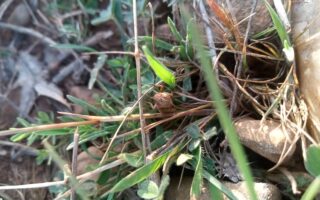
Hatching is underway!
The Conservatoire d’espaces naturels Provence-Alpes-Côte d’Azur, the Parc Animalier de la Barben, and the Citadelle de Besançon are pleased to announce the birth of Primo, a beautiful baby Crau Plain Grasshopper measuring ...
Cathy Gibault is a veterinarian who has worked for more than 15 years in zoos on conservation programmes for threatened species. Since 2014, she has been contributing to the improvement of knowledge about the Crau Plain Grasshopper. Today she is coordinator of the Crau Plain Grasshopper breeding programme set up as part of the Life SOS Crau Grasshopper Project. We give her the floor:
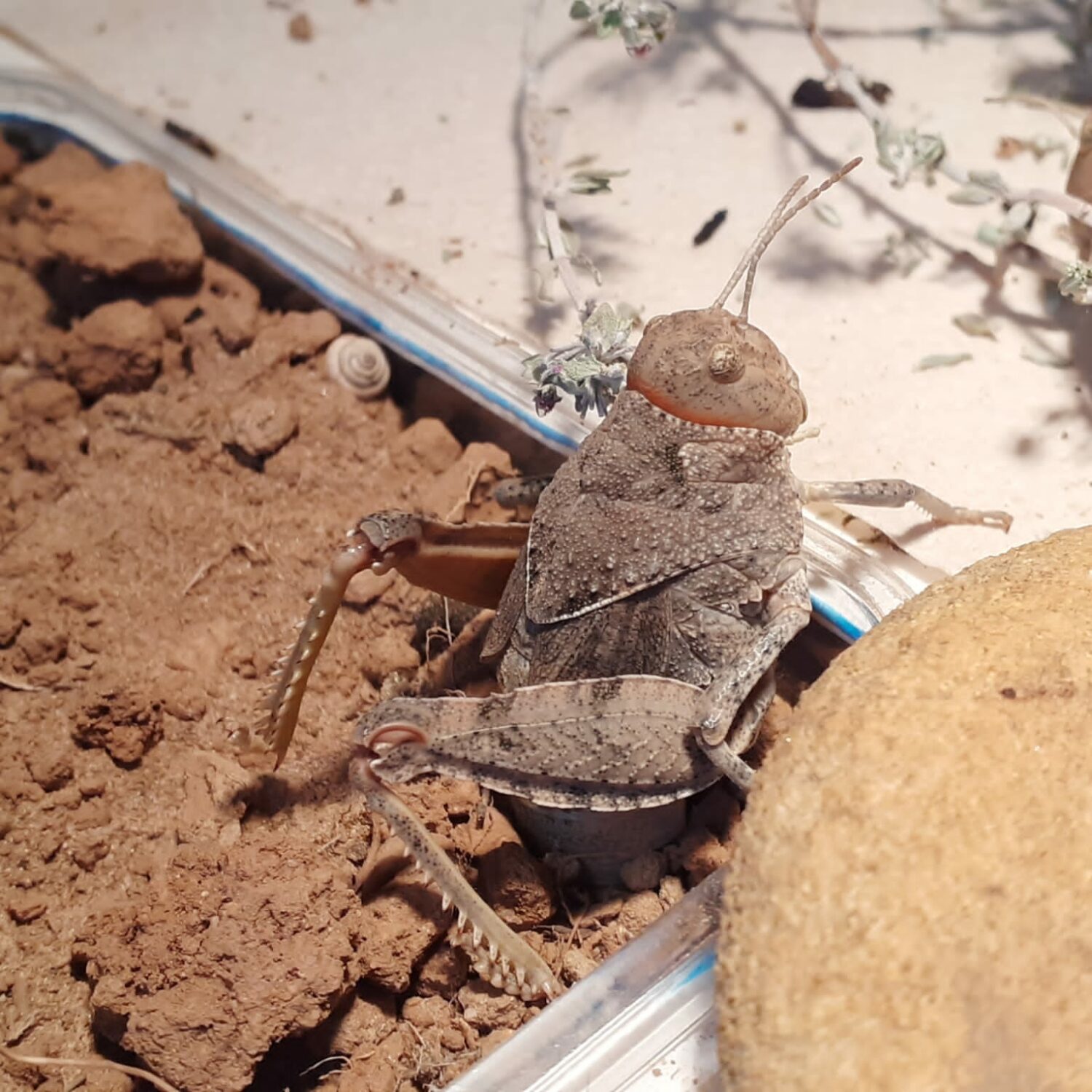
© Cathy Gibault
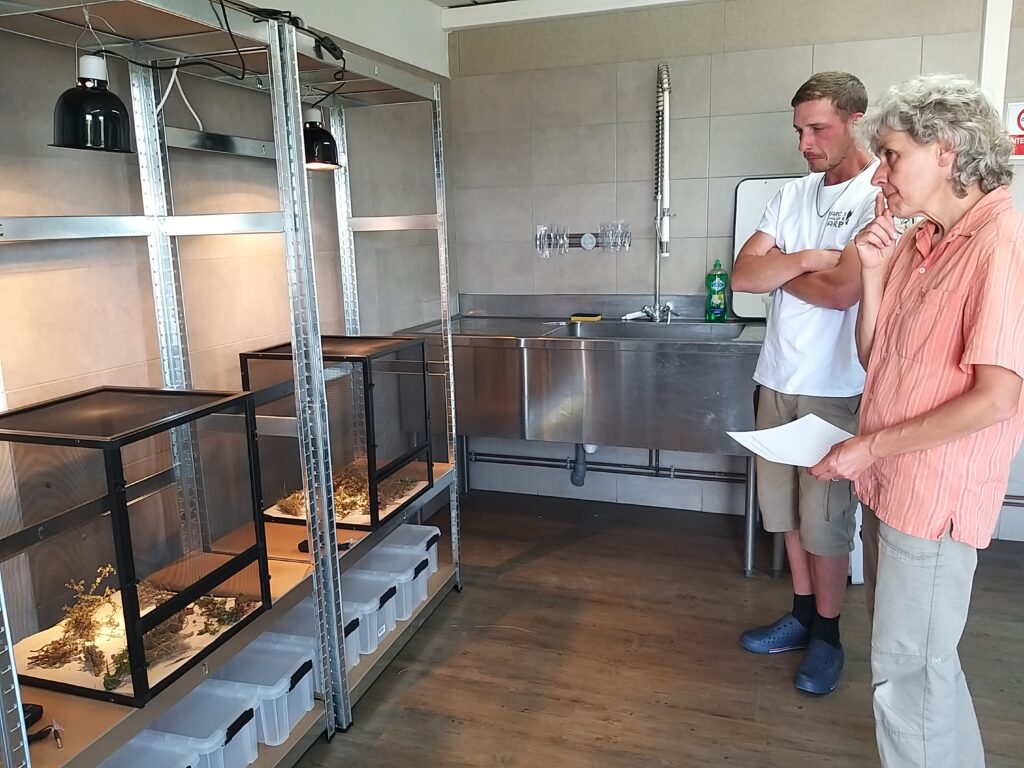
For the past 8 years, I have been working with the Conservatoire d’espaces naturels de Provence-Alpes-Côte d’Azur as a conservation biologist for the Crau Plain Grasshopper. Today, I coordinate both ex situ and in situ breeding. There are now 3 ex situ breeding stations (the Barben animal park, the Besançon zoological park and my station in Corrèze), and 2 in situ breeding stations. The aim is to improve the success of captive breeding by increasing the number of hatchlings and the survival rate of young grasshoppers. In the long term, this should enable us to increase the population of Crau Plain Grasshopper by reintroducing individuals into the natural environment.
Year after year, we learn more about the Crau Plain Grasshopper. The species is very specialised. If it is only found in the Crau, it is not by chance. It is totally adapted to this environment, which is also very particular. As a result, it is difficult to decipher the conditions necessary for its development, to carry out its complete development cycle and to reproduce them in an artificial way.
The experimentation time is short. We can only observe the locusts for three or four months, because the life span of the Crau Plain Grasshopper is short. As a result, we can have the feeling that we are not making any progress very quickly, but we are nevertheless accumulating knowledge as we go along. In particular, observing the behaviour of grasshoppers in a terrarium teaches us a great deal. It fascinates me.
One of the puzzles that still needs to be solved is that we don’t know exactly how females lay their eggs in their natural environment and what conditions are necessary for the eggs to develop properly. We don’t know how they choose their egg-laying site, or how they deposit the egg pod in the ground.
The Crau Plain Grasshopper is the first insect species in the world to have benefited from a conservation strategy developed according to IUCN standards. While the massive and rapid decline of insects is recognised by all, the vast majority of conservation programmes concern mainly mammals and birds.
Do you have a message for people who don’t know the Crau Plain Grasshopper?
In a more general way, be interested in the small animals around us, not only mammals and birds, which are more visible, more attractive, more interesting, more emotional. All the little creatures around us have a role. Even if sometimes it is less spectacular.
The Crau Plain Grasshopper plays its role in the Crau ecosystem, and it is up to us to preserve it.
Interview by Gaïa Ollivier

The Conservatoire d’espaces naturels Provence-Alpes-Côte d’Azur, the Parc Animalier de la Barben, and the Citadelle de Besançon are pleased to announce the birth of Primo, a beautiful baby Crau Plain Grasshopper measuring ...
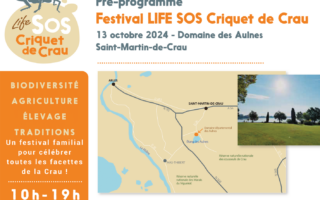
Become a partner of the LIFE SOS Crau grasshopper Festival to be held on 13 October at the Domaine départemental des Aulnes!
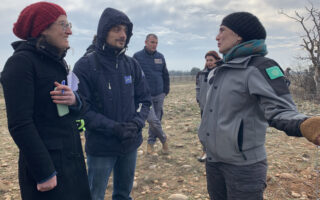
Launched in 2021, the LIFE SOS Crau Plain Grasshopper project has reached the half-way stage at the start of 2024. On 27 and 28 February, the LIFE project team was visited by Gustavo Becerra Jurado from CINEA (the European executive agency ...
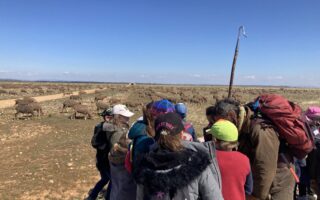
As part of the Life Crau grasshopper educational project, the Conservatoire d’espaces naturels Provence-Alpes-Côte d’Azur and the Parc animalier de La Barben are offering teachers two days of free activities aimed at ...